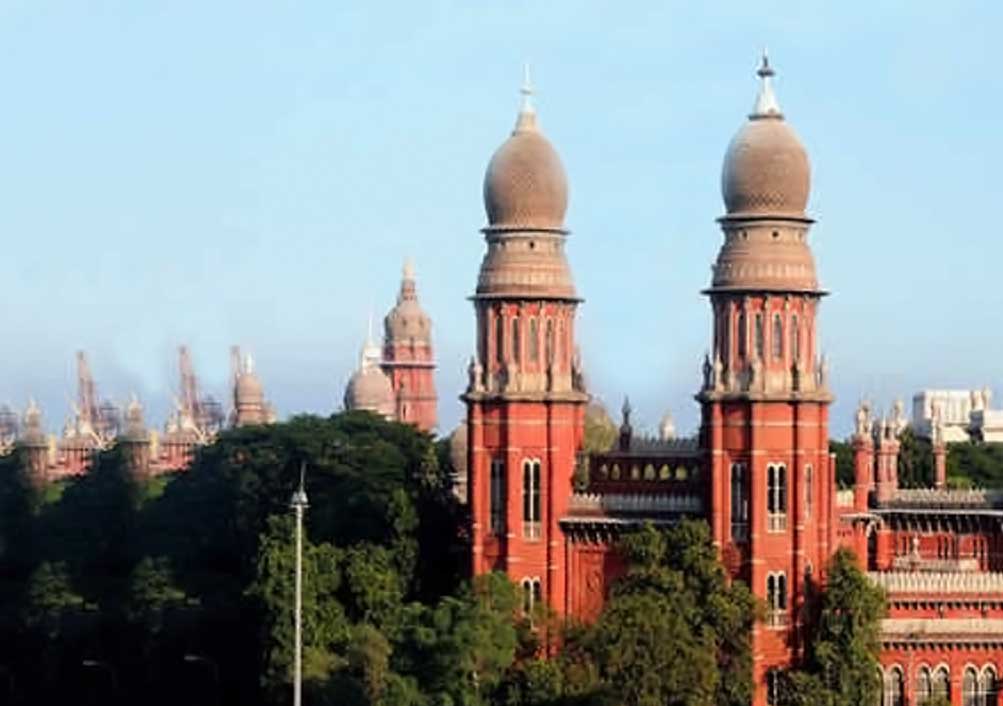Madras High Court grants bail to former Tamil Nadu Minister M. Manikandan in rape case

Read Order: Dr.M.Manikandan v. The Inspector of Police
LE Staff
Chennai, July 8, 2021: The Madras High Court has granted conditional bail to former Tamil Nadu Minister M Manikandan in a matter involving allegations of rape on the false pretext of marriage, observing that the complainant was aware that the accused was already married.
A Bench of Justice M Nirmal Kumar opined that it was unlikely that the complainant had been induced into the relationship on the false pretext of marriage.
The complaint in the instant case was lodged by a Malaysian national who alleged that the former AIADMK Minister had raped her on the false pretext of marriage and forced her to undergo miscarriages.
The complainant and the petitioner were in a live-in relationship as husband and wife for the past five years. During that period, the complainant got pregnant thrice and had abortions. The petitioner failed to marry the complainant and threatened her that he would publish her obscene photographs in social media. This had led to the lodging of the complaint by her.
The Petitioner, i.e., former minister Manikandan, however, denied the allegations. During the course of an anticipatory bail hearing, he alleged that the complaint was filed after repeated attempts for a compromise and extortionist demands were not accepted by him. He has maintained that the relationship with the complainant was consensual. Later, his anticipatory bail plea was dismissed and he was arrested.
K.S. Dinakaran, the counsel for the former minister, submitted that from the complaint and the statement of the complainant woman, no offence u/s 376 IPC is made. Similarly, the abortion was not by force, so the offence u/s 313 IPC is also not attracted.
With regard to the offence u/s 67-A of the Information Technology Act, 2000, the counsel accepted that the petitioner sent nude photographs of the complainant but there was no publishing or transmission of these photos to any other persons; it was only a private communication between the petitioner and the complainant who were intimately involved in a live-in relationship for five years. Hence, the offence u/s 67-A of the Information Technology Act, 2002 would not get attracted in this case, Manikandan’s counsel argued.
After hearing the arguments in the case, the Bench said, “The defacto complainant was aware of the fact that the petitioner was a married man and the marriage proposal of the defacto complainant was bound to be seriously opposed by the family members of the petitioner. Further, the defacto complainant had sufficient intelligence to understand the significance of marriage quality of the act she was consenting and she continued her relationship in secret till lodging of the complaint”.
The High Court further found that the defacto complainant had shown no resistance to the petitioner’s overtures, and thus, she freely exercised a choice between resistance and assent.
In the opinion of the Bench, the complainant was well aware of the consequence that the marriage between her and the petitioner would not take place, thus leading to the inference that she freely, voluntarily and consciously consented to have sexual intercourse with the petitioner and her consent was not in consequence of any misconception of fact and they were living together as man and wife. There is a clear distinction between rape and consensual sex, the court said.
The High Court granted bail to the petitioner subject to the conditions that he reports before the Police daily for two weeks and thereafter as required for interrogation, and that he shall not tamper with any evidence or influence the witnesses during the investigation or trial.
Sign up for our weekly newsletter to stay up to date on our product, events featured blog, special offer and all of the exciting things that take place here at Legitquest.




Add a Comment